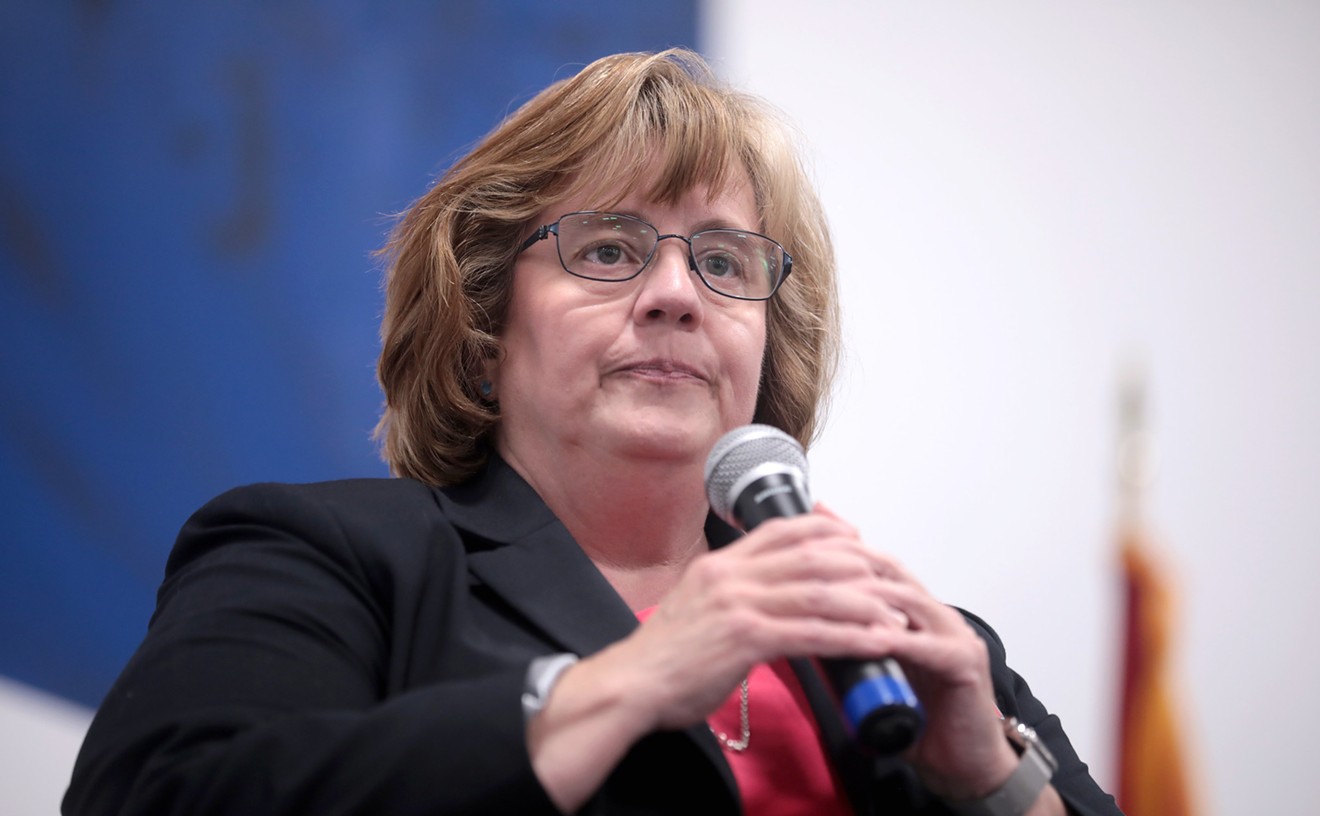The Veterans Affairs inspector general has found that scheduling practices at the VA hospital in Phoenix are "convoluted" and non-compliant with policy.
The interim report released this morning does not answer the question of whether 40 veterans died on various VA waiting lists -- as a retired doctor has alleged -- but the inspector general found about 1,700 veterans waiting to see a doctor who are "at risk of being forgotten or lost in Phoenix HCS's convoluted scheduling process."
See also:
-Phoenix VA Director, Two Others Placed on Leave
-VA Official: We Found "No Evidence" of a Secret Waiting List at Phoenix VA Hospital
Due to various ways of apparently gaming the scheduling system, there are 1,400 vets in the Phoenix area waiting for a doctor, on an electronic waiting list, but the auditors found an additional 1,700 who aren't even on the waiting list:
To date, our work has substantiated serious conditions at the Phoenix [Health Care System]. We identified about 1,400 veterans who did not have a primary care appointment but were appropriately included on the Phoenix HCS' [electronic waiting lists]. However, we identified an additional 1,700 veterans who were waiting for a primary care appointment but were not on the EWL. Until that happens, the reported wait time for these veterans has not started. Most importantly, these veterans were and continue to be at risk of being forgotten or lost in Phoenix HCS's convoluted scheduling process. As a result, these veterans may never obtain a requested or required clinical appointment. A direct consequence of not appropriately placing veterans on EWLs is that the Phoenix HCS leadership significantly understated the time new patients waited for their primary care appointment in their FY 2013 performance appraisal accomplishments, which is one of the factors considered for awards and salary increases.Sure enough, the investigators found discrepancies between the wait times reported by the Phoenix VA health care system, and what those wait times actually were. Here's what those wait times actually are:
To review the new patient wait times for primary care in FY 2013, we reviewed a statistical sample of 226 Phoenix HCS appointments. VA national data, which was reported by Phoenix HCS, showed these 226 veterans waited on average 24 days for their first primary care appointment and only 43 percent waited more than 14 days. However, our review showed these 226 veterans waited on average 115 days for their first primary care appointment with approximately 84 percent waiting more than 14 days. At this time, we believe that most of the waiting time discrepancies occurred because of delays between the veteran's requested appointment date and the date the appointment was created. However, we found that in at least 25 percent of the 226 appointments reviewed, evidence, in veterans' medical records, indicates that these veterans received some level of care in the Phoenix HCS, such as treatment in the emergency room, walk in clinics, or mental health clinics.Additionally, the report mentions that investigators are looking into wait-time discrepancies and methods of VA employees gaming the scheduling system at VA health care systems around the country.
As for the allegation that 40 veterans died in Phoenix on a waiting list, the interim report from the inspector general doesn't say either way, although President Obama said last week that it appears the veterans' deaths were not related to delays in care:
We are not reporting the results of our clinical reviews in this interim report on whether any delay in scheduling a primary care appointment resulted in a delay in diagnosis or treatment, particularly for those veterans who died while on a waiting list. The assessments needed to draw any conclusions require analysis of VA and non-VA medical records, death certificates, and autopsy results. We have made requests to appropriate state agencies and have issued subpoenas to obtain non-VA medical records. All of these records will require a detailed review by our clinical teams.The report also states that once they began investigating the allegations about the wait times in Phoenix, other allegations about misconduct at the Phoenix VA health care system cropped up:
Lastly, while conducting our work at the Phoenix HCS our on-site OIG staff and OIG Hotline received numerous allegations daily of mismanagement, inappropriate hiring decisions, sexual harassment, and bullying behavior by mid- and senior-level managers at this facility. We are assessing the validity of these complaints and if true, the impact to the facility's senior leadership's ability to make effective improvements to patients' access to care.The interim report doesn't give a time-frame of when the entire investigation is supposed to be completed, but does include recommendations for mitigating the scheduling problems immediately.
Click here to read the report.
Got a tip? Send it to: Matthew Hendley.
Follow Valley Fever on Twitter at @ValleyFeverPHX.
Follow Matthew Hendley at @MatthewHendley.










